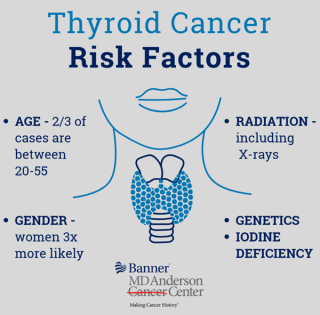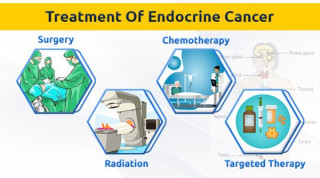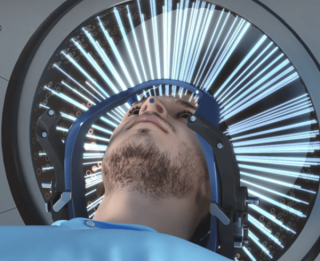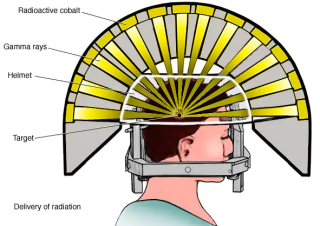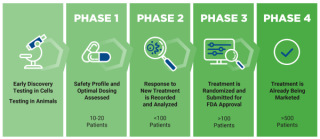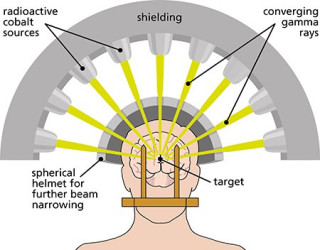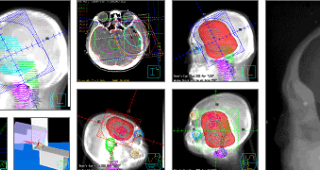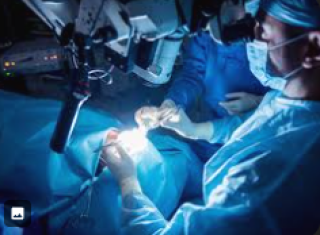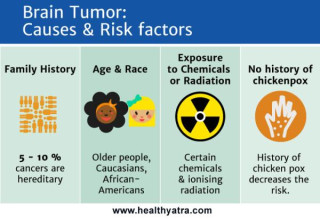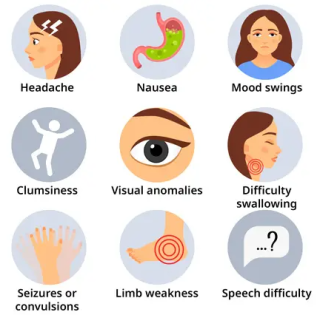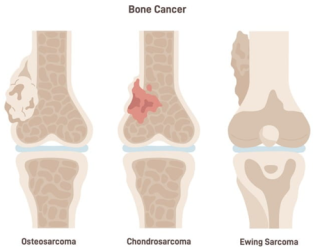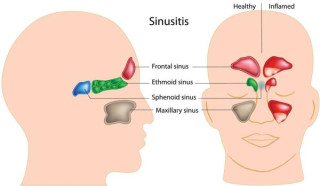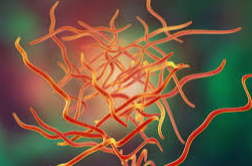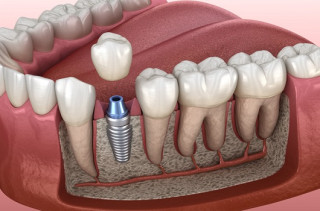What are the causes and risk factors of thyroid cancer?created at May 04, 2009 1,232 1,232 The exact causes of thyroid cancer are largely unknown, |
What should I ask my doctor when diagnosed with endocrine cancer?created at May 04, 2009 1,289 1,289 Diagnosing endocrine cancer involves a combination of methods, |
What are the treatment options for endocrine cancer?created at May 04, 2009 1,231 1,231 Treatment for endocrine cancers depends on the specific type, |
How do you diagnose endocrine cancer?created at May 04, 2009 1,243 1,243 Diagnosing endocrine cancer typically involves a combination of physical examination, |
Gamma Knife & Stereotactic Radiosurgerycreated at May 04, 2009 1,560 1,560 Gamma Knife and stereotactic radiosurgery are advanced, |
Precision Treatment: Understanding Stereotactic Radiosurgery for Brain Tumorscreated at May 04, 2009 1,405 1,405 Stereotactic radiosurgery (SRS) is a precise radiation therapy technique used to treat brain tumors and other lesions.It delivers a highly focused, |
Essential Questions to Ask Your Doctor About Brain Cancer Treatmentcreated at May 04, 2009 1,254 1,254 Navigating a diagnosis of brain cancer can be overwhelming, |
Understanding the Side Effects of Brain Tumor Treatmentcreated at May 04, 2009 1,438 1,438 Brain tumor treatments, |
Clinical trials for Brain Cancercreated at May 04, 2009 1,249 1,249 Clinical trials for brain cancer are research studies that test new treatments, |
Stereotactic radiosurgery for Brain Cancercreated at May 04, 2009 1,259 1,259 Stereotactic radiosurgery (SRS) is a non-invasive type of radiation therapy that delivers highly focused beams of radiation to a precise point in the brain to target brain tumors, |
Understanding Radiation Therapy for Brain Tumorscreated at May 04, 2009 1,461 1,461 Radiation therapy for brain tumors uses high-energy radiation to kill cancer cells and shrink tumors.This can be delivered externally through a linear accelerator (external beam radiation therapy) or internally via implanted radioactive seeds (brachytherap... |
Understanding Surgery for Brain Tumors: A Comprehensive Guidecreated at May 04, 2009 1,364 1,364 Brain tumor surgery aims to remove as much of the tumor as safely possible while minimizing damage to healthy brain tissue.The approach varies depending on the tumor's location, |
Unraveling the Enigma: Exploring the Causes of Brain Tumorscreated at May 03, 2009 1,479 1,479 The precise causes of brain tumors remain largely unknown, |
What are the symptoms of Brain Tumors?updated at Nov 11, 2025 1,523 1,523 Brain tumor symptoms are highly variable, |
What is brain cancer?created at May 03, 2009 1,237 1,237 Brain cancer is a disease in which malignant (cancerous) cells form in the tissues of the brain.It encompasses a wide variety of tumors, |
Exploring Treatment Options for Bone Cancer: A Comprehensive Guidecreated at May 03, 2009 1,542 1,542 Treatment for bone cancer depends on several factors including the type and location of the cancer, |
What are the symptoms of bone cancer?created at May 03, 2009 1,234 1,234 Bone cancer symptoms vary depending on the location and type of cancer, |
What is the difference between primary bone cancer and secondary bone cancer?created at May 03, 2009 1,293 1,293 Primary bone cancer originates in the bone itself, |
The Mindset Shift: Embracing Confidence to Minimize Acneupdated at Nov 08, 2025 1,451 1,451 Minimizing acne transcends mere skincare routines; a confident mindset plays a pivotal role.Stress and negative self-perception can worsen acne, |
Dressing to Distract: Choosing Clothing to Minimize Acnecreated at May 03, 2009 1,468 1,468 To minimize the visual impact of acne, |
Adornments That Distract: Using Jewelry to Minimize Acneupdated at Nov 08, 2025 1,319 1,319 How Jewelry Can Worsen AcneDirty Jewelry: Jewelry, |
Enhancing Your Natural Beauty: Makeup Tips for Minimizing Acnecreated at May 03, 2009 1,427 1,427 For acne-prone skin, |
Elevate Your Look: Hairstyle Tips for Minimizing Acneupdated at Nov 08, 2025 1,511 1,511 Acne and hairstyles might seem unrelated, |
Understanding Acne Medications: Options and Considerationscreated at May 03, 2009 1,479 1,479 Acne treatment options range from over-the-counter topical treatments like benzoyl peroxide and salicylic acid, |
Clearing Acne: The Importance of Gentle Cleansingcreated at May 03, 2009 1,460 1,460 Gentle cleansing is crucial for clearing acne because harsh cleansers can strip the skin of its natural oils, |
Blood Pressure Machine Said I Have No Blood Pressure!?updated at Dec 14, 2024 1,454 1,454 If your blood pressure machine says you have no blood pressure, |
The Importance of Hydration: How Much Water Should You Drink?created at May 08, 2009 1,406 1,406 Proper hydration is crucial for numerous bodily functions, |
Exploring Acupuncture as a Complementary Approach to Sinusitis Treatmentcreated at May 08, 2009 1,284 1,284 Acupuncture, |
How long does sinusitis have to be treated?updated at Nov 07, 2025 1,226 1,226 The required duration of sinusitis treatment is highly variable, |
Navigating the Maze of Sinusitis Medications: Understanding Side Effectscreated at May 08, 2009 1,479 1,479 Sinusitis medications, |
Can you do a culture to find out what bacteria are causing sinus infection?created at May 08, 2009 1,271 1,271 To identify the bacteria causing a sinus infection, |
A vaporizer for sinus treatmentcreated at May 07, 2009 1,324 1,324 A sinus vaporizer, |
Navigating Side Effects from Sinusitis Medications: What You Need to Knowcreated at May 07, 2009 1,416 1,416 Sinusitis medications, |
The non drug remedies for sinus infectionupdated at Nov 03, 2025 1,324 1,324 Several non-drug remedies can provide relief from sinus infection symptoms.It's crucial to understand these are supportive measures, |
Exploring Antibiotics for Sinus Infections: Understanding Treatment Optionsupdated at Nov 07, 2025 1,530 1,530 Sinus infections, |
Navigating the Search for Sinus Specialists: A Guide to Finding the Right Doctorcreated at May 07, 2009 1,337 1,337 Finding the right sinus specialist involves researching doctors' credentials (board certification in otolaryngology, |
Can Lyme Disease be prevented?updated at Nov 08, 2025 1,338 1,338 Lyme disease prevention primarily focuses on avoiding tick bites.This can be achieved through wearing long sleeves and pants when in tick-infested areas, |
How does Lyme disease infection occur?updated at Oct 30, 2025 1,356 1,356 Lyme disease infection occurs through the bite of an infected blacklegged tick (also known as a deer tick).These ticks acquire the bacteria, |
Decoding Lyme Disease Diagnosis: Unraveling the Mysteryupdated at Nov 08, 2025 1,525 1,525 The Diagnostic Dilemma of Lyme DiseaseDiagnosing Lyme disease is notoriously complex and frustrating, |
Tobacco as risk factors for vulvar cancercreated at May 05, 2009 1,263 1,263 While not a direct cause, |
Exploring Morning Symptoms: Understanding the Impact of Sleep on Nasal Healthcreated at May 07, 2009 1,362 1,362 Morning nasal congestion or other symptoms like dryness or stuffiness can be significantly impacted by sleep quality and position.Poor sleep, |
Demystifying Pinworms - A Common Nuisance in Childhoodcreated at May 13, 2009 1,403 1,403 Pinworms, |
Banishing Lice - A Step-by-Step Guide to a Lice-Free Householdcreated at May 13, 2009 1,253 1,253 Dealing with lice in the household can be a stressful experience, |
Tips to Prevent Recurring Head Lice in Your Babycreated at May 13, 2009 1,319 1,319 Head lice can be a pesky problem, |
How is Hodgkin's disease treated?created at May 22, 2009 1,380 1,380 Hodgkin's disease treatment depends on the stage and type of the disease, |
Ensuring the Long-Term Success of Dental Implants: Key Factorscreated at May 25, 2009 1,263 1,263 The long-term success of dental implants hinges on several key factors: meticulous surgical placement ensuring proper bone integration (osseointegration), |
Essential Guidelines for Those Undergoing Growth Hormone Therapycreated at May 14, 2009 1,367 1,367 Successfully undergoing growth hormone therapy requires diligent adherence to prescribed dosages and administration schedules, |
Who Shouldn't Get the Chickenpox Vaccine?created at May 13, 2009 1,333 1,333 Individuals with a severe allergic reaction (e.g.anaphylaxis) to the vaccine's components, |
